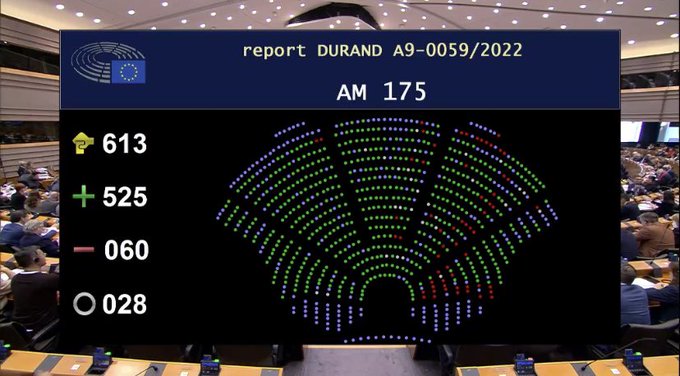The CSRD or Corporate Sustainability Reporting Directive of December 14, 2022 has been published in the Official Journal of the European Union (OJEU), following its adoption by the European Parliament and the Council.

The draft directive "on the publication of sustainability information by enterprises " was officially submitted on April 21, 2021. Following the usual legislative procedure, the draft will have undergone a consultation phase and numerous exchanges between all stakeholders.
Last November, Parliament voted on the amended text, after the Council had formulated its own version of the directive. The publication of the CSRD in the OJEU marks the start of a new stage in the process: transposition, entry into force and, above all, implementation.
As with all directives, each member state must transpose the directive into national law - unlikeregulations. One or more bills and decrees will therefore transpose into French law the new requirements for the " publication of sustainability information by companies". The subject has already been taken up by the French Senate, in a report by the Delegation for Enterprise.
ESG criteria set down in law by the EU and reporting standards proposed by EFRAG
At the same time, the European Commission has mandated EFRAG to define the European Sustainability Standards (ESRS) in the light of the ESG criteria set out in the Directive. To this end, EFRAG has put out several ESRS interim drafts for consultation, to cover ESG criteria and make the link between the extra-financial and the financial.
cross-functional standards
- general requirements and obligations induced by CSRD(General Requirements) ;
- GeneralDisclosurerequirements .
Factors
Environment
- climate change mitigation, including category 1, category 2 and, where applicable, category 3 greenhouse gas emissions;
- adapting to climate change;
- aquatic and marine resources ;
- resource use and the circular economy;
- pollution ;
- biodiversity and ecosystems.
Factors
Social
- equal treatment and equal opportunities for all, including gender equality and equal pay for work of equal value, training and skills development, employment and inclusion of people with disabilities, measures to combat violence and harassment in the workplace, and diversity ;
- working conditions, including job security, working time, decent wages, social dialogue, freedom of association, the existence of works councils, collective bargaining, including the proportion of workers covered by collective agreements, workers' rights to information, consultation and participation, work-life balance, health and safety ;
- respect for human rights, fundamental freedoms and the democratic principles and standards set out in the International Bill of Human Rights and other core UN human rights conventions, including the UN Convention on the Rights of Persons with Disabilities, the UN Declaration on the Rights of Indigenous Peoples, the International Labour Organization's Declaration on Fundamental Principles and Rights at Work, the European Convention for the Protection of Human Rights and Fundamental Freedoms, the European Social Charter and the Charter of Fundamental Rights of the European Union.
Governancefactors
- the role of companies' administrative, management and supervisory bodies with regard to sustainability issues and their composition, as well as their expertise and skills in exercising this role or the opportunities available to them to acquire such expertise and skills;
- the main features of the company's internal control and risk management systems, in relation to the sustainability information process and the sustainability decision-making process;
- ethics and corporate culture, including anti-corruption, whistleblower protection and animal welfare;
- the company's activities and commitments related to the exercise of its political influence, including its interest representation activities;
- management and quality of relations with customers, suppliers and groups affected by the company's activities, including payment practices, particularly with regard to late payments to small and medium-sized businesses.

